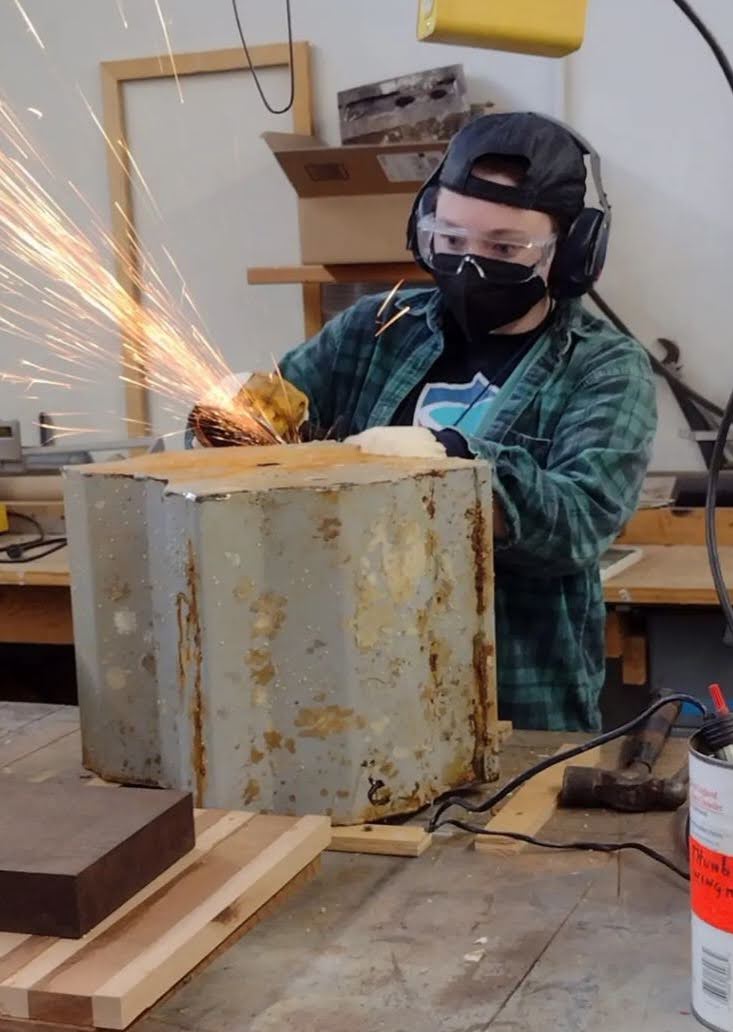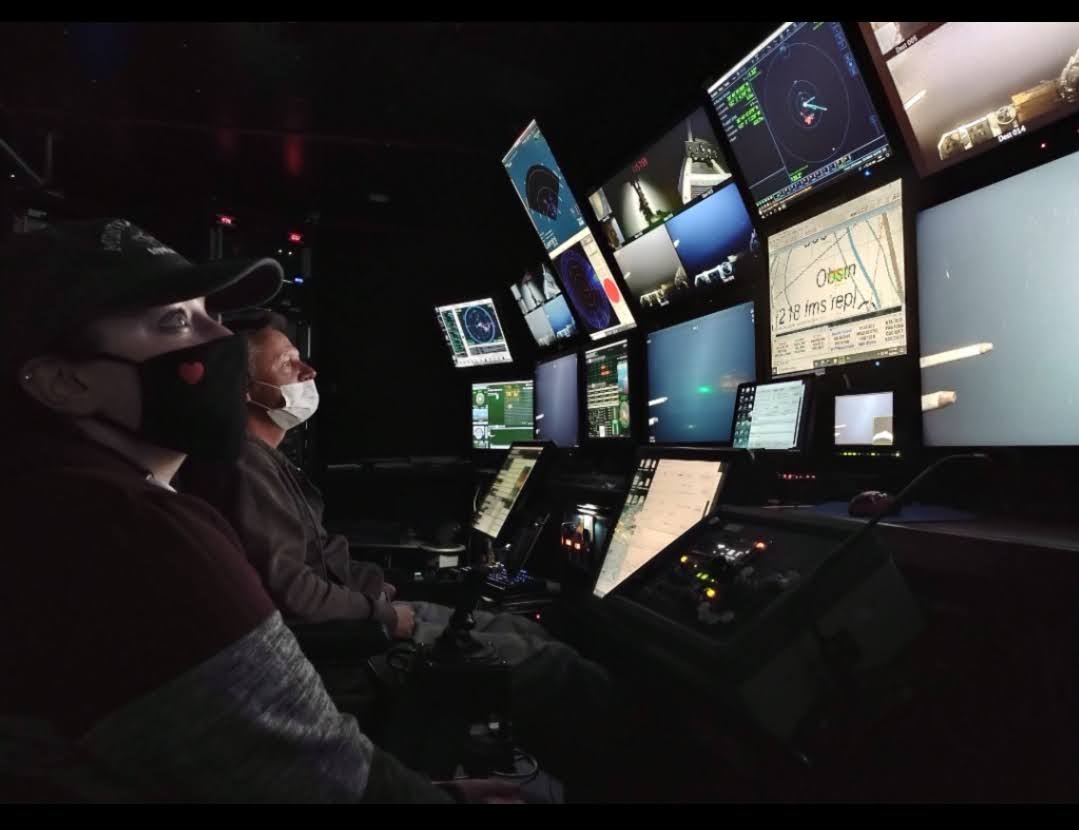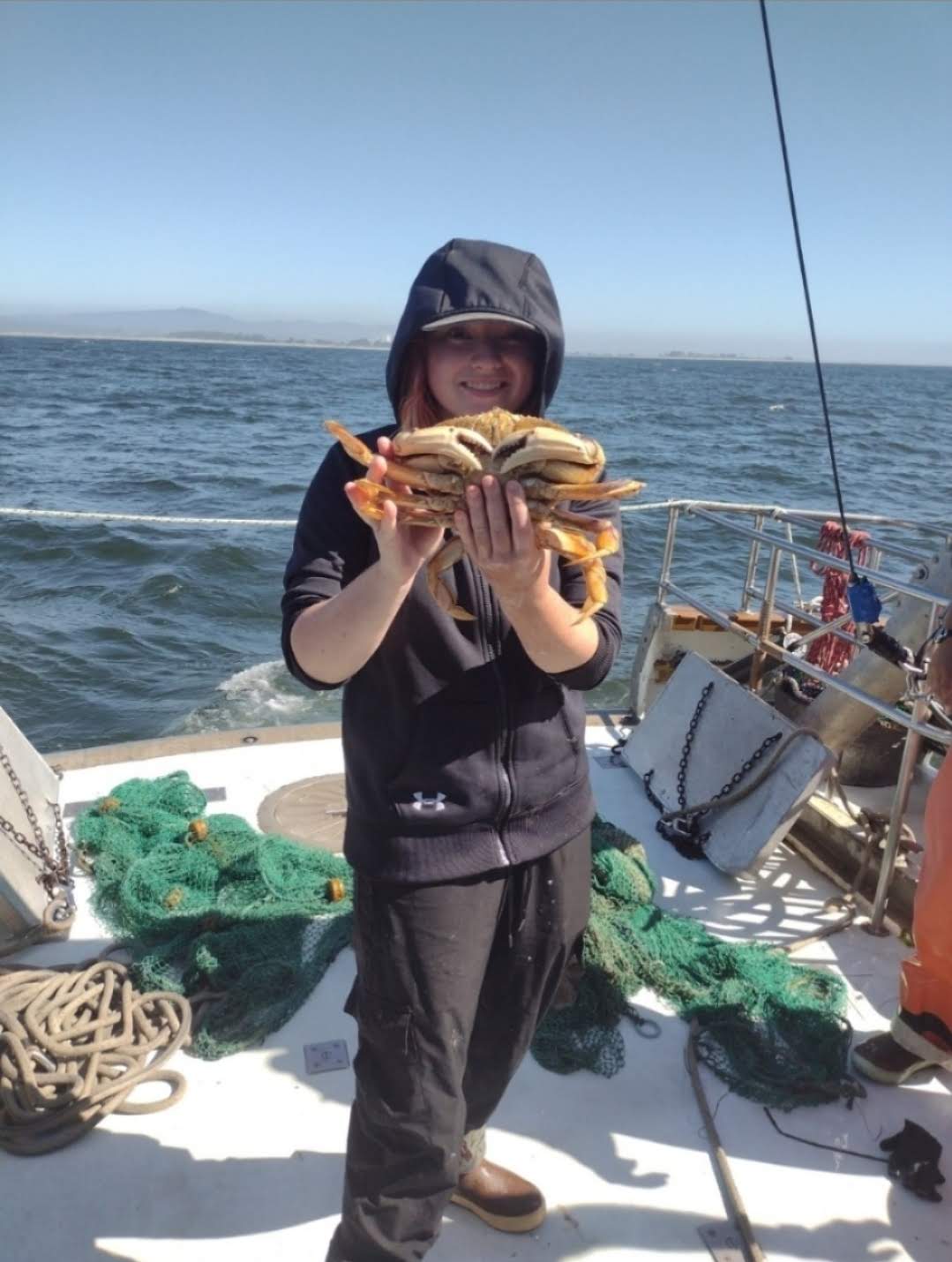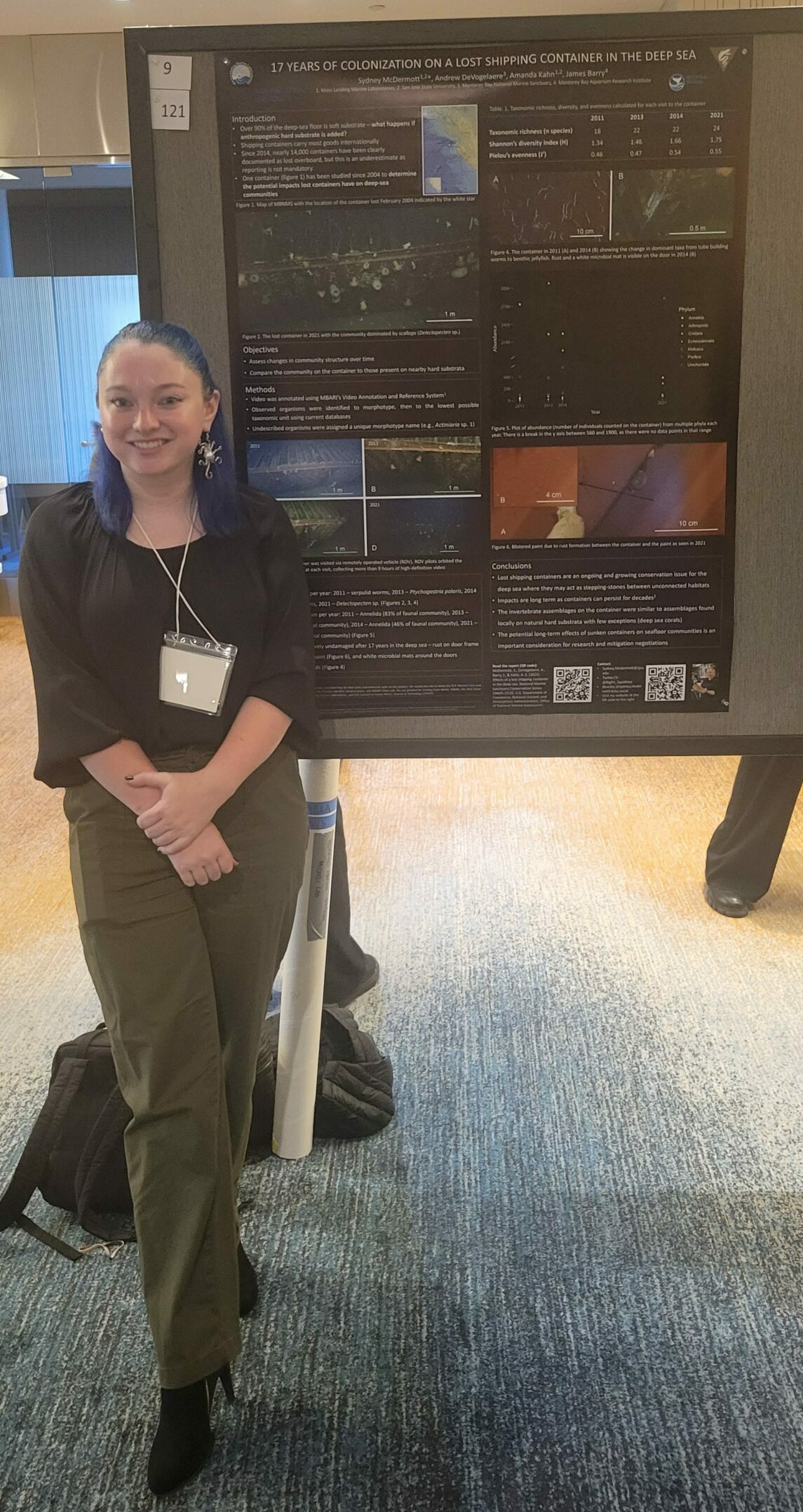"Into the Deep: Impacts of Natural and Artificial Substrates in the Deep Sea"
A Thesis Defense by Sydney Mcdermott
Zoom | Live-Stream | December 13th, 2023 at 10:00 am PDT
Abstract
With increasing maritime activities, man-made structures such as oil platforms, wind farms, and lost shipping containers are becoming ubiquitous in the oceans. These structures serve as substrates for marine organisms. There is evidence that unique communities develop on some man-made structures; however, the effects of substrate type vary, and are often confounded with geography and depth. Man-made objects lost in shallow water have a better chance of being retrieved than those in the deep sea, resulting in the deep sea becoming a semi-permanent repository. We studied invertebrate communities on a lost shipping container found at 1.3 km depth and deployed experimental substrates at 200 m depth to assess whether colonization and succession differ between natural and artificial substrates in the deep sea. The community on the lost container changed over time, becoming more similar to the communities on naturally occurring substrate in the Monterey Bay Submarine canyon with dominance by echinoderms, cnidarians, poriferans, and small mollusks. Communities on the experimental artificial substrates were similar to those found on experimental natural substrates, with no significant difference in diversity, richness, or evenness based on substrate type. There was a significant difference across all experimental substrates over time, indicating that the substrates may have undergone successional changes at similar rates with a major shift after 5 years. Lost objects may serve as substrates for communities mostly similar to those that form on naturally occurring hard substrates, making anthropogenic pollutants a potential subject of future monitoring efforts.
Bio
Sydney received her B.S. in marine science from the University of Maine in 2020 before attending Moss Landing Marine Laboratories. She has worked on a variety of projects across different marine habitats, from studying the microbiome of an east coast intertidal alga, to monitoring harmful algal blooms in the Pacific Northwest, to investigating the changes in sea sponge populations in the Bering Sea over the past 5 million years. Her research at MLML under the guidance of Dr. Amanda Kahn focuses on the impact of lost anthropogenic objects in the deep sea, specifically lost shipping containers. Sydney also began a PhD in ecology and evolution at the University of Louisiana at Lafayette in the fall of 2023.





